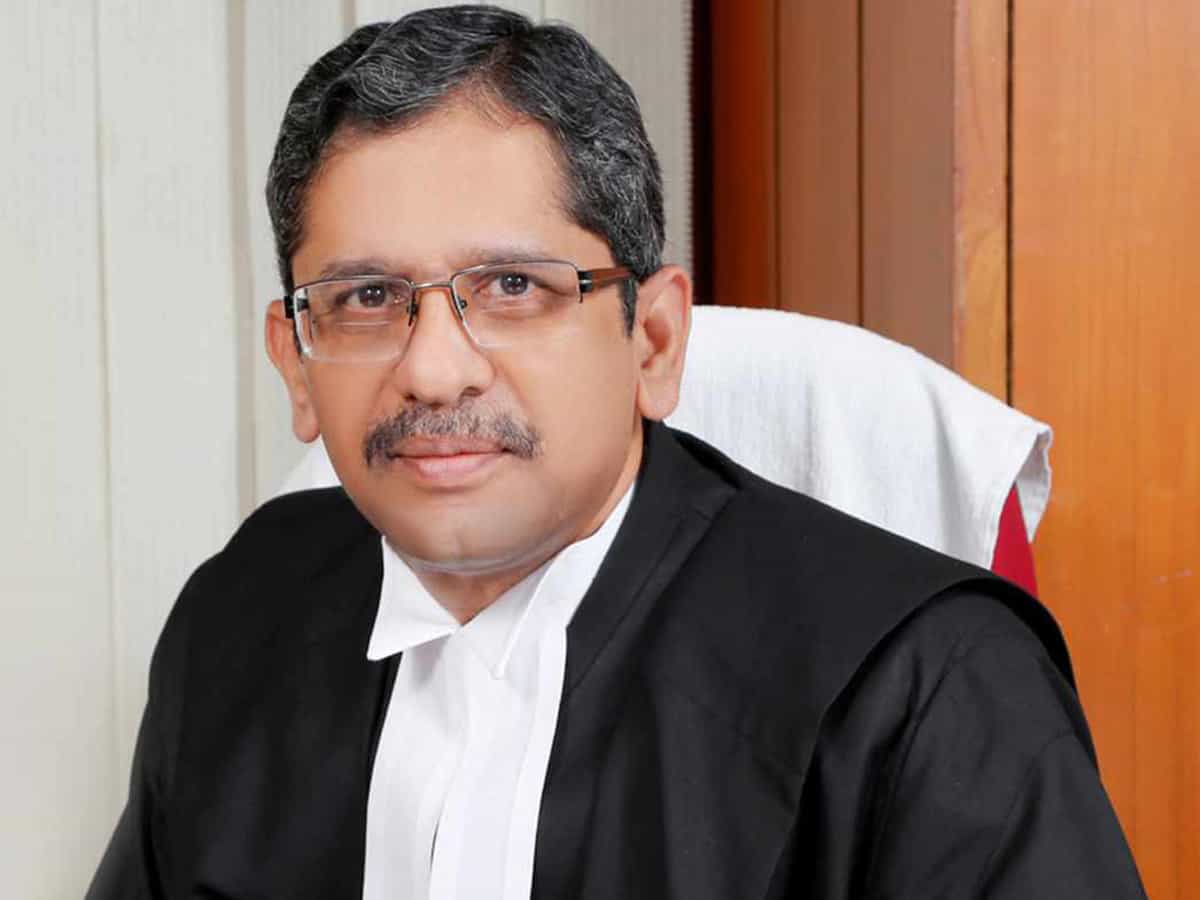New Delhi: Justice NV Ramana has been appointed as the next Chief Justice of India on Tuesday by President Ram Nath Kovind.
He will assume charge as the 48th CJI on April 24, a day after the retirement of incumbent CJI Sharad Arvind Bobde. CJI Bobde, who succeeded Justice Ranjan Gogoi as the country’s topmost judge in November 2019, nominated Justice Ramana as his successor last month, through a letter to the Union law ministry.
Justice Ramana will be the country’s top judge for a year and four months, till August 26, 2022.
He will be the second Chief Justice of India from Andhra Pradesh; Justice K Subba Rao was the ninth Chief Justice of India from 1966-67.
Recently, he was accused by Andhra Pradesh chief minister YS Jagan Mohan Reddy of “influencing” the state high court and stalling a probe into a land scam case.
Who is NV Ramana?
Born on August 27, 1957 in an agricultural family in the Ponnavaram village in Krishna district of undivided Andhra Pradesh, Nuthalapati Venkata Ramana was a student leader during the nationwide Emergency in 1975. He lost an academic year too during his days as a student activist.
Justice Ramana worked as a journalist for a regional newspaper for two years before enrolling as an advocate on February 10, 1983.
He has specialized in constitutional, criminal, service and inter-state river laws, according to the website of National Legal Services Authority.
National Legal Services Authority of India, which was set up on November 9, 1995, provides free legal aid to eligible candidates and organizes Lok Adalats for the speedy resolution of cases. The CJI is its Patron-in-Chief.
Justice Ramana has also functioned as Additional Standing Counsel for the central government and Standing Counsel for Railways in the Central Administrative Tribunal (CAT) at Hyderabad, besides serving as Additional Advocate General of Andhra Pradesh.
On June 27, 2000, he was appointed as a Permanent Judge of the Andhra Pradesh High Court and functioned as acting Chief Justice of the Andhra Pradesh High Court from March 10, 2013 to May 20, 2013.
NV Ramana’s landmark judgments
On March 2 last year, a five-judge Constitution bench led by Justice Ramana declined a plea to refer to a larger Bench petition challenging the abrogation of Article 370 of the Constitution, which gave special status to the erstwhile state of Jammu and Kashmir. Earlier, in one of the judgments in January 2020, Justice Ramana ruled that access to the internet is a fundamental right by extension while pulling the government up for the telecommunications blackout in Jammu and Kashmir after the state’s special status was revoked on August 5, 2019.
In another judgment, a five-judge Bench of the Supreme Court headed by Justice Ramana, dismissed a curative petition filed by Pawan Kumar Gupta who was sentenced to death in the 2012 Nirbhaya gang rape and murder case, thus paving way for his execution. Four Nirbhaya case convicts, including Pawan Kumar Gupta, were hanged to death in Tihar jail on March 20, 2020.
In another significant judgment, Ramana was also part of a bench that brought the office of the Chief Justice of India under the ambit of the Right to Information (RTI) Act.
NV Ramana versus Jagan Mohan Reddy
In October last year, Andhra Pradesh chief minister Jagan Mohan Reddy wrote to the Chief Justice of India, alleging that Ramana and his relatives had engaged in corruption in relation to the acquisition of land in the touted capital city Amravati, and was attempting to destabilize his government in by allegedly influencing hearings and decisions in the Andhra Pradesh High Court.
Reddy accused the state judiciary of being biased in favour of the TDP and its interests in the nature of the orders passed staying investigation, staying enquiry, even in admitting cases for hearing. Two-month long legal dispute followed until the Supreme Court dismissed the allegations against Ramana as “meritless”.

